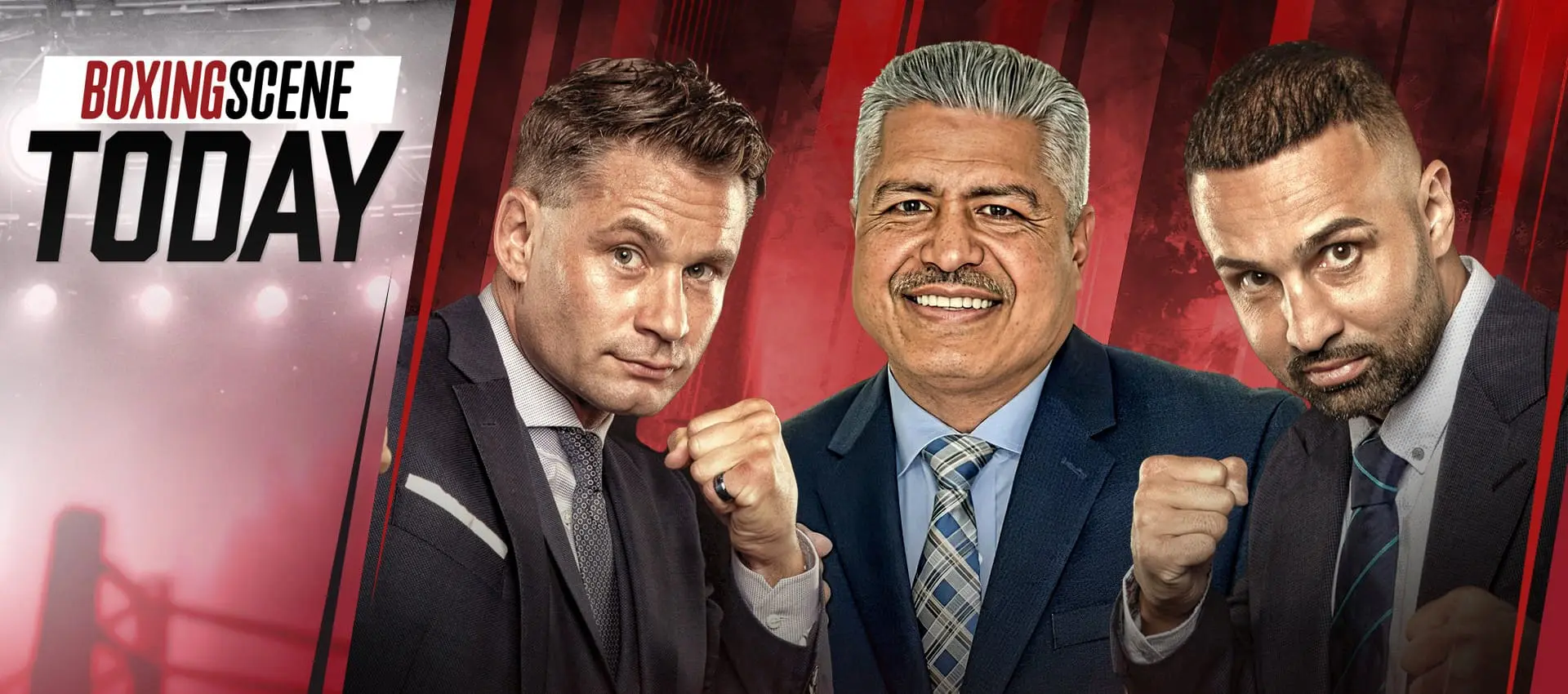'BoxingScene Today'Talk Show
Pauli, Algieri, and Coach Garcia breakdown today's top stories

Upcoming episode - coming soon
Boxing Interviews
Interviews with boxing biggest stars

Conor Benn Opens Up On The Darkest Chapter of His Career
Dec 12, 2025 |

Diego Pacheco: 'It was time to make my own Team Pacheco'
Dec 12, 2025 |

DEONTAY WILDER: 'FIGHT TALKS WITH USYK ARE GOING WELL'
Dec 12, 2025 |

'AJ WAS GOING TO FIGHT CASSIUS CHANEY' Eddie Hearn talks Jake Paul-Anthony Joshua
Nov 29, 2025 |






